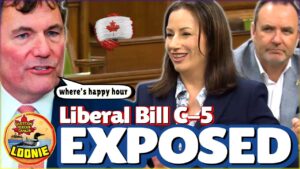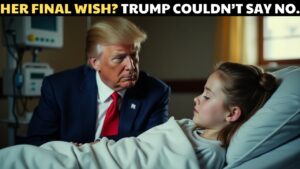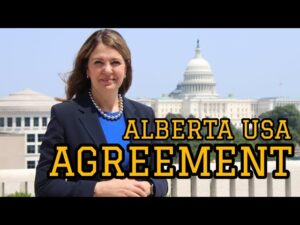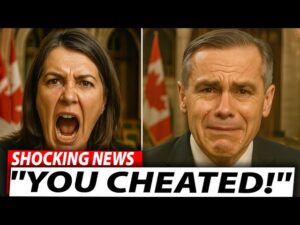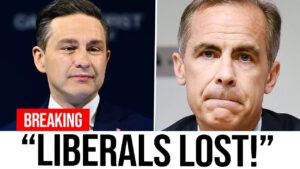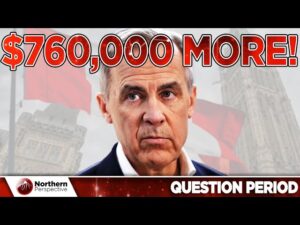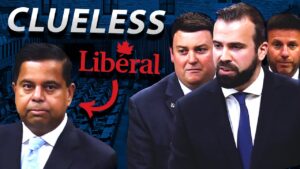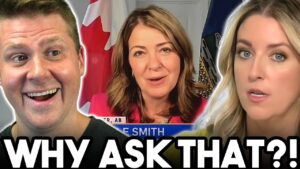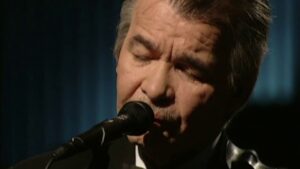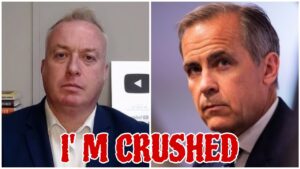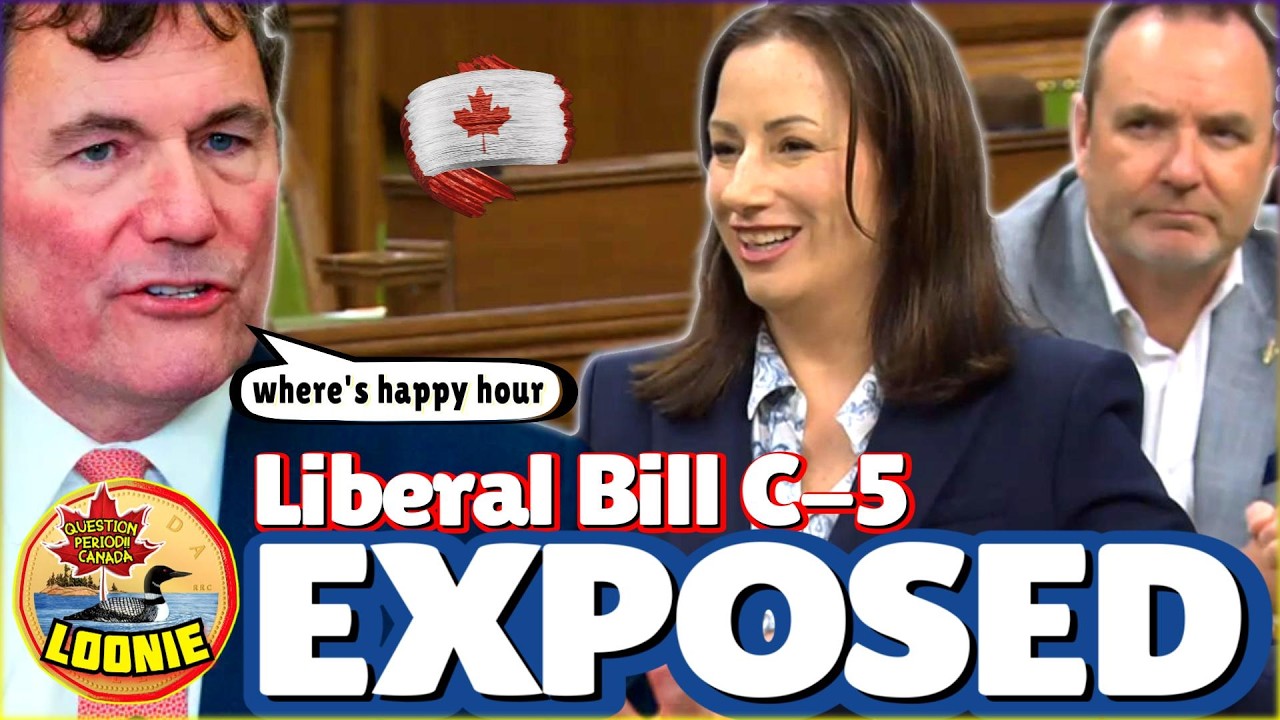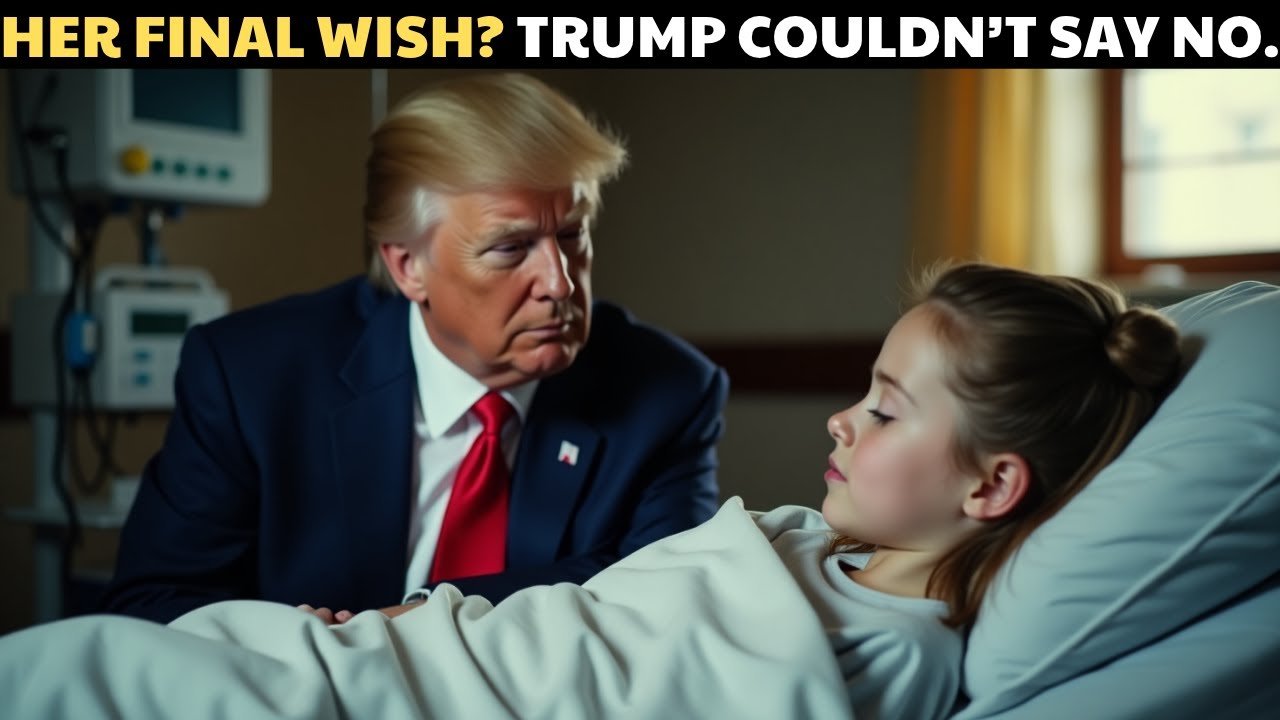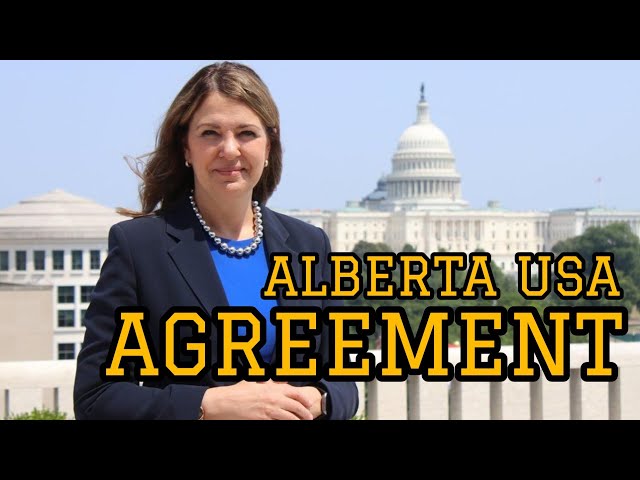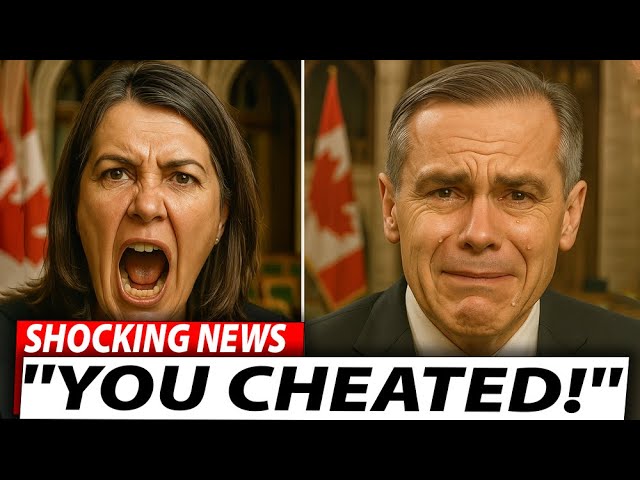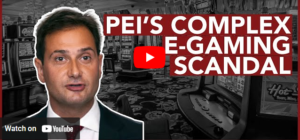Video Transcript:
Elon Musk drops Hillary Clinton crime scandal. Before we dive in, kindly hit the subscribe button and let us know where you’re watching from in the comments. The marble halls of the capital building had seen their fair share of historic moments, but none like the one unfolding that afternoon. The room was a buzz with the usual hum of congressional business. The rustling of papers, the tapping of pens, the shuffle of feet as lawmakers prepared for yet another routine session. It was an average day in Washington where politics moved at its usual pace and nothing ever seemed as urgent as it truly was. However, the air in the room felt different today. A sense of anticipation hung thick and the low murmur of voices was tinged with something almost electric. Elon Musk, the billionaire CEO of Tesla and SpaceX, stood at the podium preparing to speak before the congressional committee. He had always been a man who thrived in the spotlight, but today he seemed to carry the weight of something much heavier than the usual Silicon Valley controversies. His face, usually marked by the casual ease of someone used to being in the public eye, was now taught, his jaw clenched with a seriousness that immediately drew the attention of everyone in the room. The usual Musk bravado, his quick wit and unconventional charm, was gone. Instead, the world’s most high-profile entrepreneur was a man on a mission. The committee, which had assembled to discuss a routine set of bills, was visibly thrown off. Musk wasn’t a politician. He wasn’t a regular witness in congressional hearings. In fact, his presence had surprised many in the room. The committee members exchanged puzzled glances as they shuffled their papers, trying to figure out exactly what he was doing there. Why was he standing in front of them today about to speak about something other than rocket ships or electric vehicles? A few whispered to one another, clearly unsure of the purpose. But Musk wasn’t interested in small talk or pleasantries. He was here for one reason, and that was to drop a bombshell that would not only disrupt the day’s proceedings, but also rock the political establishment to its very core. His eyes swept across the room, his gaze steady, but intense. Ladies and gentlemen, Musk began his voice calm, yet laden with a gravity that suggested this was no ordinary day. What I’m about to share with you today is not a business proposal or a scientific breakthrough. This is not about innovation or space exploration. This is about something far more dangerous, something that threatens the very foundations of American democracy. A ripple of unease went through the room. Lawmakers leaned forward, sensing that Musk was about to say something that would forever alter the political landscape. This wasn’t what they had signed up for, but they couldn’t look away. Behind Musk, the screens flickered to life, displaying a series of grainy surveillance videos. The images on the screen were unclear at first. An intimate meeting room, a group of people sitting at a table, some faces obscured in shadow, others halflit by dim lights. But even through the murky footage, there was no mistaking who was sitting at the head of the table. The room fell silent as the image zoomed in on Clinton’s face. She was speaking to a group of people, her voice barely audible through the low hum of the footage. Musk turned to the committee, his expression unwavering. This is just the beginning, he said. What you’re looking at is only a small part of the evidence I’ve uncovered. I’ve spent months investigating, and what I’m about to show you will shock you. The room was now on edge. every ear attuned to his words. Committee members exchanged confused glances, the pieces of the puzzle beginning to fall into place, but none of them had yet fully grasped what Musk was suggesting. This wasn’t a simple case of corruption or a shady political deal. No, what Musk was implying was something far more sinister, something that would change the way America viewed its own government. Musk clicked a button and the screen switched to a new set of images. More footage, this time showing Clinton in a different location meeting with individuals who were clearly not political allies. The faces of powerful business people and foreign operatives flashed across the screen. Some of them unfamiliar to the public, but significant enough to raise eyebrows. There was no denying it now. The people in these meetings weren’t there for casual chitchat. They were involved in something much darker. He leaned into the microphone, his voice steady as ever. What you see here is not a conspiracy theory. This is hard evidence. These meetings were about much more than policy. They were about silencing political opponents, controlling narratives, and ensuring that Hillary Clinton remained in power at any cost. Gasps echoed across the room. The words hung in the air, thick with implications. Clinton, the former Secretary of State, the 2016 Democratic presidential candidate, was at the center of something far more nefarious than anyone had imagined. The evidence Musk had gathered painted a picture of a welloiled machine designed to control every aspect of the political discourse. It was a coordinated effort to eliminate any opposition, any challenge to Clinton’s influence. And Musk had the proof to back it up. As the footage continued, the committee members were no longer just listening. They were absorbing, processing, and scrambling to make sense of the avalanche of information coming at them. Some exchanged nervous glances, others shuffled in their seats. It was clear that the evidence Musk had uncovered wasn’t just damning, it was monumental. This wasn’t a small scandal. It was something that could alter the course of the upcoming election and possibly even the future of the nation. Musk wasn’t finished. He pressed another button and the screen went dark for a moment before a new image appeared. A transcript of a conversation between Clinton and an anonymous source. The words on the screen were chilling. They spoke of tactics to discredit political opponents, strategies to manipulate public opinion, and covert operations designed to tip the scales in her favor. The transcript was short, but it was enough to confirm the suspicions Musk had been harboring for months. I didn’t come here to make baseless accusations. Musk said, his voice cutting through the growing tension in the room. I came here to show you the truth. The American people deserve to know what’s been happening behind closed doors. And it’s time for those responsible to be held accountable. The committee members were stunned into silence. This was no longer about partisan politics. This was about the integrity of the election process, about the preservation of democracy itself. As Musk’s words lingered in the air, one thing became abundantly clear. The 2024 election had just become much more complicated, and the stakes had never been higher. The room was thick with tension as Musk took a step back from the podium, his eyes scanning the faces of the congressional committee members. The footage on the screen still flickered in the background, showing Clinton in a series of meetings, each one more incriminating than the last. The questions were beginning to pile up in the air, but Musk remained focused. He wasn’t finished. He motioned to the side and a new figure entered the room, causing the already hushed atmosphere to grow even more oppressive. The whistleblower had arrived. The individual, whose identity was being kept hidden for safety reasons, was immediately shielded behind a screen, their face obscured by a blur, their voice altered to prevent anyone from identifying them. They stood at the microphone looking uneasy but resolute. This was not a person seeking fame or attention. They were there to reveal the truth. I worked within a network of government contractors, the whistleblower began, their voice grainy and distorted on several projects related to the security and surveillance of political figures. My role wasn’t to question orders, just to carry them out. But as I got deeper into these operations, it became clearer to me that something much larger and far more dangerous was at play. Musk stood silently at the side, watching intently, knowing that this testimony was the key to unlocking the full story. The room was as quiet as a tomb. No one dared interrupt. The air itself seemed to hold its breath as the whistleblower continued. For years, I witnessed covert actions that were designed not just to monitor potential threats, but to silence those who stood against Hillary Clinton and her political agenda. What started as data collection soon turned into manipulation. Manipulation of public perception, the suppression of dissenting voices, and the outright defamation of political opponents. The committee members exchanged uneasy glances. The details were damning, but the weight of the testimony was yet to come. I’m here today to speak the truth. The whistleblower’s voice trembled slightly because I can no longer remain silent about what I saw. The operation was vast, global, even. It wasn’t just about a few political rivals. We were tasked with gathering compromising information on individuals, targeting their personal lives, and feeding that information to the right people. This was about control. Control of the narrative, control of the election cycle, and control over anyone who might threaten Hillary Clinton’s ambitions. The room was deathly silent. If anyone had been skeptical before, they were now forced to confront the gravity of the situation. The scope of the conspiracy was much larger than anyone had imagined. It wasn’t just about some errant emails or a few shady campaign donations. It was about power on a scale that threatened to undermine the entire democratic process. Where did these operations take place? A member of the committee asked, his voice barely above a whisper. The whistleblower hesitated. The operations were coordinated through a combination of government agencies, private contractors, and third party groups who were loyal to Clinton. They had people in key positions in every part of the government, from the FBI to the CIA. I witnessed how they used the resources at their disposal to undermine their enemies. Musk, his face tight with concentration, stepped forward. What they’re telling you is true, he said, his voice unwavering. This network was designed not just to silence political voices, but to manipulate the media, control narratives, and suppress any information that threatened Clinton’s grip on power. The actions of these people weren’t just illegal. They were designed to destroy democracy as we know it. The committee members were now grappling with the enormity of what they had just heard. A few scribbled notes, others stared blankly at the screen. It was as if the world they knew was beginning to unravel thread by thread. Were there any direct ties between Clinton and these actions? One of the committee members asked, leaning forward with renewed interest. Is there proof she was involved in these decisions? The whistleblower shifted slightly, the nerves palpable even through the distorted voice. Yes, the whistleblower continued. Clinton was the mastermind behind much of it. The operations were not only sanctioned, but orchestrated by her inner circle. She was involved in the decision-making at every level. She knew what was going on, and she encouraged it. The goal was simple, to eliminate anyone who could challenge her position, both inside and outside of her party. Musk spoke up again, his voice firm. The whistleblower is being truthful. We have documents, encrypted communications, and testimony from others within the network who have corroborated this information. What you’re hearing is not a lie. It’s the truth. At this moment, the committee was no longer just an observer of the situation. They were participants tasked with determining whether this testimony could bring about real change. Some members of the committee were in shock, their faces pale as the realization of the magnitude of the scandal began to set in. Others seemed skeptical, trying to process the information they had just received. But no one could deny the weight of the allegations being made. The whistleblower’s voice grew more confident as they continued. I know that I’m risking my life by being here today. I know that what I’m saying will put me in danger, but the American people need to know the truth. The election process has been compromised, manipulated, and controlled by those in power who seek only to preserve their own interests. As the whistleblower finished speaking, a long pause hung in the air. The silence in the room was oppressive, each person processing what they had just heard in their own way. Some were visibly shaken, others absorbed in thought, but no one dared to speak just yet. The implications of the testimony were too great to ignore. Musk, sensing the gravity of the moment, stepped forward once more. This isn’t just about one person. It’s about the system. The people who have used their power to manipulate elections, to target their rivals, and to control the flow of information. What we’re seeing today is the beginning of a much larger reckoning. With those words, Musk turned and motioned for the screens to go dark. The testimony had been given. The evidence was laid out. The wheels of justice were now in motion, but the question remained, would anyone be able to stop the powerful forces at work? and more importantly, would the American people ever trust their government again? As the room erupted into murmurss, the next phase of the investigation loomed large. But the answers were not yet clear. One thing was certain. The revelations Musk and the whistleblower had brought to light would set the stage for a battle that could change the future of American politics. And no one, least of all Hillary Clinton, could have anticipated just how farreaching the consequences would be. The revelation had only just begun to sink in, but already the pieces of the puzzle were starting to fall into place. The congressional committee was no longer just reacting to the testimony. They were now tasked with figuring out how far the corruption had spread and how to expose it to the American public. The stakes were high, the pressure mounting, and Washington was beginning to shake at its core. Behind closed doors, investigators, tech experts, and journalists worked tirelessly to verify the explosive information Musk and the whistleblower had unveiled. What had initially been dismissed by some as conspiracy theory was now looking more like an undeniable reality. The information was farreaching, implicating not just Hillary Clinton, but a complex web of individuals and institutions embedded deeply within Washington and beyond. Musk, never one to shy away from controversy, had already assembled a team of hackers, cyber security experts, and independent investigators to dig into the massive amounts of data he had obtained. The first order of business was to decipher the encrypted communications between Clinton’s associates and several high-profile figures from both the business and political spheres. These individuals were not just ordinary supporters or donors. They were players in a larger, more sinister scheme. As Musk’s team analyzed the data, patterns began to emerge. There were coded messages between Clinton’s closest confidants and foreign operatives. Messages that spoke of manipulating public opinion, spreading disinformation, and influencing elections across state lines. The conspiracy wasn’t just limited to one election cycle or even to one country. It was global in scope with Clinton’s reach extending far beyond American borders. The operation had been strategically designed to control media narratives and political agendas, not just in the United States, but also in Europe and Asia. The level of coordination was staggering. Clinton’s allies in various governments and corporations had used their influence to suppress disscent and silence political opposition both at home and abroad. Key media outlets had been bribed or coerced into spreading favorable narratives about Clinton’s policies while ignoring or downplaying any negative stories. These actions, once considered isolated incidents or political maneuvering, now looked like pieces of a carefully constructed plan to maintain power at all costs. The cyber security team Musk had enlisted was able to uncover a series of secret bank transfers that linked Clinton’s foundation to a shadow network of international organizations, think tanks, and businesses with vested interests in her continued political career. The money trail was shocking. Millions of dollars in political contributions, consulting fees, and bribes had been funneled into the hands of foreign operatives who were actively working to sway elections in multiple countries. As the investigation progressed, Musk began to understand the full scale of the conspiracy. The operatives in this network were not just interested in Clinton’s political career. They were interested in power. They had used their influence to ensure that Clinton’s rivals were discredited and silenced, their reputations destroyed. Political opponents had been accused of crimes they hadn’t committed, while damaging information had been leaked to the press to ensure they would never challenge her. It was a campaign of systematic destruction. But even as Musk’s team was uncovering these new connections, Clinton’s defenders were working hard to discredit the entire investigation. They dismissed the evidence as fabricated or taken out of context, claiming that it was simply a smear campaign designed to undermine her political career. Clinton herself issued a statement vehemently denying any wrongdoing. She called Musk’s accusations an unfounded attack and insisted that she had always operated within the law. Yet, the more they denied, the more evidence continued to surface. Journalists from across the globe began digging deeper into the network of connections Musk had uncovered. Several investigative reports were published detailing the secret meetings, the backroom deals, and the underhanded tactics Clinton had used to solidify her power. The evidence was overwhelming, and the more the public learned, the less they were inclined to believe Clinton’s denials. The American people were not the only ones reacting to the unfolding scandal. International governments, who had been unwittingly influenced by Clinton’s network, were now taking a closer look at their own involvement. Foreign leaders who had previously been silent began to speak out, questioning their own ties to Clinton’s operation. In some cases, countries that had once been strong allies of the United States now felt betrayed. Realizing how deeply they had been manipulated. As more whistleblowers came forward, the scope of the operation grew even more disturbing. Former government officials, many of whom had been part of Clinton’s inner circle, began to speak out about the illegal actions they had been asked to carry out. These individuals, once loyal to Clinton, now found themselves caught in a moral dilemma. Some claimed that they had been unaware of the full extent of the operation at the time, while others admitted that they had turned a blind eye to Clinton’s actions, afraid of the consequences if they had spoken up. Among the new whistleblowers was a former senior aid to Clinton, who revealed that there had been a specific plan in place to target journalists who had been critical of Clinton’s policies. The plan, which was documented in a series of confidential memos, outlined the steps to be taken to neutralize reporters, editors, and news outlets that could harm Clinton’s image. This included bribing media executives, intimidating reporters, and even threatening to expose damaging personal information if they did not comply with Clinton’s wishes. The revelation sent shock waves through the media industry. For years, journalists had been working under the assumption that they were protected by their professional ethics and the First Amendment. But the new evidence suggested that some of the most prominent media figures in America had been bought or coerced into supporting Clinton’s narrative. The trust between the media and the public began to erode as more and more people realized how deeply the media had been influenced by powerful political forces. The investigation into Clinton’s network was rapidly becoming the biggest political scandal in American history. The sheer scope of the conspiracy, the involvement of high-profile figures, and the global reach of the operation made it impossible to ignore. Clinton’s once impenetrable political machine was now in tatters. As the truth about her activities came to light. But even as Musk’s team and the growing army of investigative journalists unearthed more evidence, Clinton’s supporters rallied around her, insisting that the revelations were nothing more than politically motivated attacks. The fight for public opinion was intensifying and both sides were preparing for a final showdown. Musk, fully aware that the road ahead would be fraught with challenges, knew that this wasn’t just about exposing one corrupt politician. It was about ensuring that future generations would never have to face the kind of manipulation and control that had been exercised over the past several years. This battle, he knew, was about the soul of the American democracy. As the investigation continued to unfold, the nation’s eyes were fixed firmly on Washington. The question that everyone was asking now wasn’t just whether Clinton would face justice, but whether the American political system could ever recover from the corruption that had been revealed. The news of Elon Musk’s explosive allegations against Hillary Clinton had rippled through Washington like a shock wave. What had started as a whisper of scandal now felt like an earthquake, shaking the very foundation of American politics. The press was ablaze with stories, some praising Musk for his courage, others questioning his motives. But regardless of the angle, one thing was clear. The fallout was going to be felt far and wide, affecting not just Clinton’s career, but the entire political landscape. In Washington, the atmosphere was thick with tension. Lawmakers from both parties were scrambling to make sense of the scandal. Clinton’s defenders were quick to rally around her, insisting that the accusations were politically motivated and without merit. They accused Musk of attempting to destroy a career that had spanned decades and of undermining the very democratic process. But despite their best efforts, the evidence was mounting and the American people were beginning to question everything they had thought they knew about Clinton and her legacy. The committee hearings were underway and every day brought new revelations. Clinton’s allies in Congress were visibly uncomfortable, unable to ignore the growing body of evidence. Some, like Senator Richard Garcia from California, remained staunch in their defense of the former Secretary of State. This is a witch hunt, Garcia declared in a televised interview. We’ve seen this before where an outsider like Musk tries to come in and disrupt the political process, but we will not be swayed by baseless accusations. But others within her own party, facing mounting pressure from constituents and fellow lawmakers, began to distance themselves from Clinton. There were murmurss of resignation among the ranks, whispers of politicians who once viewed Clinton as an ally now contemplating their own survival in the face of such overwhelming public scrutiny. The first major political blow came when Senator Caroline Harper, a prominent Democrat from New York, publicly called for an independent investigation into the claims against Clinton. Harper, once a close friend of Clinton’s, shocked Washington by stating that the party’s future depended on transparency. If these allegations are true, Harper said in a somber speech, then we cannot afford to let political loyalty blind us to the truth. The American people deserve answers. They deserve to know if their leaders are using their power for personal gain. Her call for an independent inquiry was met with a mixed response. Some within her party lauded her courage, while others accused her of attempting to sabotage the party’s chances in the upcoming election. Clinton’s defenders, still in denial, pushed back hard, accusing Harper of betrayal. This is exactly what the right-wing media wants, one Clinton ally argued. They want to see us turn on each other and fracture our unity. Senator Harper should know better. But it wasn’t just the Democrats who were feeling the heat. On the Republican side, Clinton’s critics saw the revelations as a godsend. For years, they had tried and failed to discredit her, but now they had the smoking gun they had long sought. Right-wing media outlets were in full attack mode, broadcasting the evidence Musk had presented to millions of viewers. Fox News ran story after story, painting Clinton as a corrupt politician willing to do whatever it took to stay in power. Republican politicians, sensing an opportunity to capitalize on Clinton’s weakening position, began to rally around the idea of using the scandal to discredit the entire political establishment. The 2024 election was now just around the corner, and Clinton’s tarnished image was becoming a liability. Even though Donald Trump, the former president, was still reeling from his own controversies. Many in the GOP saw this moment as a chance to unite the party and challenge Clinton’s influence once and for all. Clinton’s corruption has been laid bare for all to see, said Senator John Thompson from Texas, a staunch Republican ally of Trump. If she’s guilty of what Musk is claiming, then she should step aside and allow a fresh face to lead our country. The American people cannot afford another four years of the same corruption and scandal. Despite the growing chorus of voices demanding action, Clinton remained defiant. In a rare public address, she stood before the cameras, unwavering in her denial. “These attacks on me and my character are not about the truth,” she said, her voice measured but firm. They are about silencing me because of the work I’ve done for this country. I have dedicated my life to public service and I will not let these baseless accusations define me. But Clinton’s defiance wasn’t enough to quell the storm brewing around her. The more she denied the allegations, the more the evidence seemed to mount. Soon, the scandal was no longer confined to Washington’s elite circles. It was spreading to every corner of the country with ordinary citizens taking sides. Social media platforms buzzed with opinions, memes, and debates as people began to take sides. Clinton’s defenders insisted that she was the victim of a political hit job. While her detractors reveled in the prospect of her downfall, for Clinton’s supporters, this was a fight for the future of the party. Many had long viewed her as a symbol of stability and progress, a champion for women and minorities. To see her brought low by scandal was not just a political defeat. It was a personal blow to those who had believed in her vision. We’re being gas-liked, said one Clinton supporter during an impassioned rally. This is the same smear campaign they’ve used for years. Why are we letting the media decide who our next leader will be? But as the days wore on and more evidence was revealed, it became increasingly clear that this wasn’t just about Clinton’s legacy. It was about the future of the American political system. The trust between the American people and their government had been eroded. The credibility of both major political parties was in question, and many wondered if the 2024 election would be the last time they could ever truly believe in the fairness of the democratic process. As the pressure on Clinton mounted, her once solid support base began to fracture. Some political analysts predicted that she would ultimately be forced to step down from the race for the presidency. But Clinton’s supporters continued to fight for her political survival. The battle over her fate was becoming a microcosm of the broader fight for control over the American political system. Behind the scenes, Clinton’s team worked tirelessly to salvage her image. They launched a full-scale media campaign to counter Musk’s allegations, offering up a stream of former allies and political operatives to discredit the evidence. Some of these individuals claimed that the surveillance footage had been doctorred or that the whistleblower was nothing more than a disgruntled former employee. But as each new report emerged, it became harder for the public to ignore the mounting evidence. The tide had started to turn. Clinton’s allies were losing their grip on the narrative. Her future in politics seemed uncertain, and with the election looming, the question of who would run in her place was becoming increasingly urgent. The political landscape was shifting, and there was no turning back. The investigation into Clinton’s alleged conspiracy was just beginning, but the damage had already been done. The question that now lingered in the minds of every American was whether their faith in the political system could ever be restored. And if so, at what cost? The public’s reaction to the revelations surrounding Hillary Clinton and the elaborate conspiracy Musk had unveiled was nothing short of a storm. What had once seemed like a series of isolated political scandals was now unfolding as a full-blown crisis that was forcing Americans to confront uncomfortable truths about their government. The scandal quickly dominated headlines across the country and the ramifications of the investigation reached deep into every corner of American life. On one side, there was the growing wave of disbelief and outrage. For many, the idea that one of the most prominent figures in American politics could be involved in such a far-reaching and calculated effort to suppress disscent was shocking. These were not just rumors or hearsay. Musk and the whistleblower had provided hard evidence. The surveillance footage, the encrypted messages, the financial records, all of it painted a picture of political corruption on an unprecedented scale. The people who had trusted Clinton, the ones who had believed in her promises of progress and integrity, now felt betrayed. “They had been sold a narrative that turned out to be a carefully constructed illusion.” “I feel like everything I believed in has been shattered,” said Angela Matthews, a lifelong Democrat from Chicago. Hillary Clinton was supposed to be someone who stood for change, for equality, for fairness. To find out that she’s been part of something like this, it makes me question everything. How many other politicians are involved in this kind of corruption? Across the nation, Clinton’s supporters struggled to come to terms with the mounting evidence. The disillusionment was palpable as many of them began to rethink their allegiance. For years, Clinton had been the face of the Democratic Party, the champion of women’s rights, the defender of progressive causes. But now, her legacy was being rewritten, and not for the better. The very ideals that had once defined her were now under question, and the damage to her image was becoming irreversible. In cities like New York and Los Angeles, where Clinton’s support had been strong, protesters took to the streets, holding signs demanding justice. Some chanted slogans of resistance, calling the investigation an attack on women in power, an attempt to bring down a female leader who had been fighting for equality. This is just another way to silence women. One protester yelled into the microphone during a demonstration outside Clinton’s campaign headquarters. They’re trying to tear down the progress we’ve made, and I won’t stand for it. But others were beginning to change their minds. Even in the heart of liberal strongholds, people were beginning to voice their frustration. I used to believe in her, said Carlos Rivera, a lifelong Democrat from Brooklyn. But the more I see, the more I realize we’ve been lied to. We’ve been manipulated. She can’t just walk away from this. We need answers and we need accountability. As protests continued to grow in cities across the nation, social media exploded with debate. Platforms like Twitter, Facebook, and Instagram became battlegrounds as citizens took sides. Hashtags like #clintongate and #accountabilityforcinton trended daily with people passionately arguing for and against the former Secretary of State. While Clinton’s defenders remained vocal, claiming that the revelations were politically motivated attacks, the evidence was too overwhelming to ignore. Videos and images that had been shared online only deepened the public suspicion. Skepticism began to spread like wildfire. Even those who had once considered themselves Clinton’s most ardent supporters began to wonder how much of the truth had been hidden from them. What had they been blind to? The political ramifications were farreaching. Many began to ask whether Clinton’s entire career was built on a foundation of lies. As more details came to light, it became clear that the operations Musk had uncovered didn’t just involve surveillance and media manipulation. There were allegations of financial crimes, unethical campaign tactics, and illegal deals with powerful foreign entities. Clinton had been a central figure in orchestrating a complex web of influence. And now the public was starting to demand transparency. For the first time in years, the American public was beginning to question the very system that had allowed such behavior to thrive. The idea of the deep state, a term once relegated to conspiracy theorists, was suddenly in the mainstream. People were asking how much of the political system had been rigged from the inside, how much had been manipulated by the powerful and wealthy to maintain their hold on power. Yet, amid the growing backlash, Clinton supporters clung to their faith in her. The argument that the investigation was politically motivated by Musk, a billionaire with his own set of agendas, remained a central talking point. They accused Musk of exploiting the investigation to boost his own public profile, claiming he was using the allegations as a stepping stone for his personal and business ambitions. Clinton’s defenders still believe that the accusations against her were part of a coordinated campaign to derail her candidacy and diminish her legacy. “It’s not about truth,” said one Clinton supporter, a political analyst named Jessica Lee. “It’s about narrative control. They’re using the media and Musk to smear someone who’s done more for this country than anyone in the GOP. It’s a distraction. They’re trying to stop her from running again, and it’s working. But for many Americans, the damage had already been done. Clinton’s supporters might continue to defend her, but the sheer volume of evidence pointed to a truth that couldn’t be ignored. It was no longer about loyalty to a politician. It was about the integrity of the political system itself, about whether the people could trust their leaders, their media, and their institutions. The election was now only months away, and the public was faced with a question. Could they vote for a candidate who was embroiled in such controversy, knowing what they now knew? The media’s role in shaping public opinion became increasingly evident as the scandal escalated. News outlets, once careful in their reporting, were now scrambling to keep up with the flood of new information. The American public, starved for clarity and direction, turned to the media to provide answers. But it quickly became clear that not all outlets were treating the scandal with the same level of seriousness. Mainstream news organizations like CNN and the Washington Post were cautious, carefully fact-checking the claims and presenting both sides of the story. They wanted to appear impartial, ensuring that they didn’t rush to conclusions before all the facts were in. However, some of the more partisan media outlets, particularly on the right, were much quicker to pile on, using every new revelation to paint Clinton as the face of political corruption. Fox News led the charge, running 247 coverage of the scandal with hosts like Tucker Carlson and Shan Hannity dissecting every detail and suggesting that Clinton’s actions went far beyond what Musk had exposed. This is the corruption at the heart of the Democrat party, Carlson declared during a prime time segment. And it’s time for the American people to know the truth. On the other hand, some left-leaning outlets, while not denying the evidence outright, were hesitant to fully embrace the scandal. They questioned the motives behind the investigation and warned of the dangers of overreaching in their coverage. But as the days passed and more witnesses came forward, their coverage began to shift. Even the most diehard Clinton supporters in the media couldn’t deny that the allegations were too significant to be ignored. Social media platforms, where narratives were often formed in real time, were divided, too. Hashtags calling for Clinton’s resignation gained traction, while others rallied to her defense, arguing that the entire affair was a product of right-wing smear tactics. The discourse was messy, raw, and intense. But one thing was clear. The scandal was forcing a reckoning within the American public. The road ahead, can America trust its leaders? As the scandal continued to unfold, the question that remained was whether America could trust its leaders again. The 2024 election was fast approaching and the country found itself at a crossroads. Would the public reject the establishment, demand new leadership, and elect someone who could restore integrity to the system? Or would they fall victim to the same cycle of corruption that had permeated Washington for decades? For now, the future seemed uncertain. Clinton’s once unassalable position had been shaken, and the public’s trust in the political system had been irrevocably damaged. The 2024 election, which had once been about policy and vision, was now a battle for the very soul of the nation. As the scandal surrounding Hillary Clinton continued to unravel, the calls for accountability grew louder and more urgent. Musk’s explosive revelations had opened a Pandora’s box that no one, not even the most seasoned political figures, could ignore. The public was now fully aware of the corruption and manipulation that had seeped into the heart of American politics. The question was no longer whether the allegations were true, but what actions would be taken in response and who would hold the reigns of power in Washington. In the wake of the revelations, a growing movement for accountability emerged. Grassroots organizations once focused on advocacy and social change shifted their attention to the investigation. Civil rights groups, environmental activists, and young political leaders began to unite under a common banner to hold those in power accountable for their actions regardless of political affiliation. This was no longer about left versus right. It was about restoring trust in the American political system, which had been shattered by the actions of powerful elites. At the center of this movement stood Musk. Despite the controversy surrounding his initial claims, the growing body of evidence had propelled him into a position of leadership. He was now more than just a billionaire tech mogul. He was seen as a crusader for transparency, a man who was willing to risk everything to expose the truth. He spoke with a sense of urgency, as if he were fighting not just for political justice, but for the future of American democracy itself. We are at a crossroads, Musk said during a press conference in Washington, his voice steady but filled with conviction. What we are uncovering is bigger than any one politician or political party. This is about the future of our country. This is about whether we, the people, can still trust the institutions that are supposed to serve us. And it’s about whether we will stand up and demand the kind of government that works for all Americans, not just the powerful few. Musk’s words resonated with many, especially among younger voters who had grown disillusioned with the political system. Social media, which had played a pivotal role in amplifying the scandal, now became the primary platform for organizing and mobilizing. Online petitions calling for Clinton’s resignation or prosecution gained millions of signatures within days, while hashtags such as #cleanup Washington and #Nolitical corruption trended globally. On the other side, Clinton’s defenders were scrambling to regain control of the narrative. Her team of loyalists launched an aggressive counter campaign, casting doubt on the veracity of Musk’s claims and questioning his motives. They accused him of using the scandal to boost his own profile and distract from his business ventures, particularly his controversial actions at Tesla and SpaceX. The mainstream media, which had initially been cautious in its coverage, was now under intense pressure from both sides. Journalists were torn between reporting on the facts and protecting the legacy of one of the most influential politicians of the last few decades. But even Clinton’s staunchest supporters couldn’t ignore the mounting evidence. The damning documents, the testimonies from whistleblowers, and the corroborated reports from independent journalists were undeniable. As the investigation progressed, the story became harder to ignore, and the narrative Clinton’s team had so carefully crafted over the years began to crumble. Congress, too, was feeling the heat. Lawmakers who had long stood by Clinton were now under increasing pressure to take action. Some feared that an action would be seen as complicity, while others feared the potential fallout if they turned against the former Secretary of State. The political ramifications of the scandal were far-reaching, and many politicians realized that their own futures were tied to how they responded to the unfolding investigation. On the floor of Congress, heated debates broke out over whether an independent investigation should be launched. Senator Caroline Harper, one of the few politicians willing to break ranks with her party, continued to champion the cause of transparency. We cannot afford to let this moment pass, she said during one such debate. The American people deserve answers, and we, as their elected representatives, must be the ones to provide them. We cannot allow the power of a few to continue to control the narrative. Her call for an independent investigation was echoed by a growing number of lawmakers, some of whom had previously been silent on the issue. As the pressure mounted, Clinton’s allies in Congress began to waver, realizing that they could not afford to stand by her if the allegations proved true. The idea of an independent commission gained traction, and it was clear that a shift in the political landscape was underway. As the investigation progressed, more whistleblowers came forward, providing crucial information that further implicated Clinton and her associates. These whistleblowers, once fearful of retribution, now saw an opportunity to speak out. Their testimonies filled in the gaps, revealing the intricate web of corruption that had been woven by Clinton’s inner circle. It was a network of influence, money, and power that stretched from the halls of Washington to the corridors of international governments and corporate boardrooms. The financial aspect of the scandal was particularly alarming. Documents revealed that Clinton’s foundation had funneled millions of dollars into the pockets of foreign officials, business magnates, and political operatives who had been working behind the scenes to manipulate both American and global politics. Some of the largest corporations in the world had been implicated, raising questions about the extent to which big money had influenced both domestic and foreign policy. The evidence painted a picture of a global network, one that had been operating in the shadows for years, with Clinton at its center. For Musk, this wasn’t just about exposing one person’s wrongdoings. It was about uncovering a larger system of corruption that had infected the highest levels of power. He spoke often about the need for systemic change, about the importance of cleaning up Washington, and about the role that tech and innovation could play in ensuring greater transparency in government. Musk’s call for reform went beyond party lines. It was a call to action for every American who had grown tired of the status quo and wanted to see a real change in how the government operated. As the scandal gained momentum, Clinton’s campaign for the presidency became increasingly untenable. Polls showed a dramatic shift in public opinion with many voters, particularly younger progressive voters, abandoning her in favor of candidates who promised to bring about real change. While Clinton continued to deny any wrongdoing, her political capital was rapidly eroding. The public had already made up their minds. The truth was out and it was ugly. In the face of mounting pressure, Clinton made a lastditch effort to salvage her campaign. She appeared on national television speaking directly to the American people in an emotional plea for forgiveness. She admitted to mistakes but denied any intentional wrongdoing. I have always fought for what is best for this country, Clinton said, her voice quivering. I have made mistakes and I am not perfect, but I will continue to fight for the values that this nation was built on. I ask for your forgiveness and your understanding. But the damage was done. The American people had heard the evidence, seen the documents, and listened to the whistleblowers. Clinton’s plea fell on deaf ears. Even some of her staunchest supporters were now questioning their loyalty. The weight of the scandal had grown too heavy for any emotional appeal to sway public opinion. The 2024 election, once expected to be a battle between the political establishment and a divided opposition, was now something much more. It was a referendum on trust, on whether the American people could still believe in their political system. Musk had called for accountability, and now the public was demanding it. The political establishment, regardless of party, would have to face the consequences of the actions that had led to this moment. The campaign for accountability had only just begun. But it was clear that the political landscape would never be the same again. Washington was on the brink of a reckoning, and the question now was whether the system could be repaired or if it would crumble under the weight of its own corruption. As the 2024 presidential election loomed closer, the political landscape was no longer defined by the usual battle lines of partisan ideologies. What had begun as a scandal centered around Hillary Clinton’s alleged corruption and manipulation had grown into something far larger, a full-scale political crisis that was shaking the foundations of the American system. The revelations about Clinton’s involvement in orchestrating an elaborate scheme to suppress her opponents, control the media, and manipulate global political processes had cast a shadow over the upcoming election. Voters disillusioned and confused now found themselves facing an unprecedented question. Could they trust the political system at all? The one strong front runner in the race, Hillary Clinton, was now struggling to regain her footing. Despite her attempts to rally support through televised addresses and emotional pleas for forgiveness, her reputation was irrevocably damaged. What had once been her greatest asset, her decades of political experience and her status as a pioneer for women in politics was now seen by many as evidence of her ability to manipulate the system for personal and political gain. For her supporters, this was a hard pill to swallow, and for many of her detractors, it was validation of their long-standing distrust of the political establishment. The polls reflected the shift in public sentiment. Once a commanding presence in the race, Clinton’s numbers began to plummet as voters, particularly younger and more progressive demographics, abandoned her in favor of other candidates. Her platform, built around experience and continuity, now felt like an outdated relic in the face of the scandal that had consumed her. Many voters who had once been loyal to Clinton now found themselves questioning everything they had believed about her and the promises she had made. At the same time, Clinton’s opponents, sensing blood in the water, began to intensify their attacks. The Republican party, already gearing up for a fierce battle in the general election, saw an opportunity to capitalize on Clinton’s weakened position. Candidates from both sides of the aisle, who had previously struggled to gain traction, now found themselves thrust into the spotlight. Their messages of reform, transparency, and accountability resonated with an electorate desperate for change. Among the Republican contenders, it was Donald Trump who seemed to benefit the most from Clinton’s unraveling. While Trump’s controversial rhetoric and policies had once alienated a large portion of the American electorate, the scandal surrounding Clinton had reignited his base. His supporters, many of whom had long seen Clinton as a symbol of the corrupt political elite, rallied behind him with renewed fervor. Trump’s campaign slogan, drain the swamp, had never seemed more fitting. He framed the scandal as evidence of the deep-seated corruption that had taken root in Washington and positioned himself as the outsider who would clean it up. “America is tired of being lied to,” Trump said during one of his rally speeches, his voice booming with confidence. “We’ve seen what’s been happening in the shadows, how politicians like Hillary Clinton have used their power to control the system, silence their opponents, and enrich themselves. The people of this country deserve better, and I’m here to give them that.” While Trump’s rise in the polls was significant, it was not without its challenges. His controversial statements and polarizing personality still alienated a large portion of the electorate. Many voters who had once viewed him as a necessary disruptor were now questioning his ability to lead the country, particularly in light of his own personal and political controversies. On the Democratic side, the race was also heating up. With Clinton’s prospects fading, alternative candidates began to gain momentum. Among them was Senator Maria Delgado, a progressive fire brand from California who had long championed policies aimed at tackling income inequality, climate change, and healthcare reform. Delgato had always been a vocal critic of the political establishment, and her campaign had been gaining traction even before the scandal broke. Now with Clinton’s once unshakable lead crumbling, Delgato’s candidacy had become a serious contender. Delgato, unlike Clinton, embraced the scandal as an opportunity to highlight the need for systemic change. Her campaign was built around the promise of transparency and a government that worked for the people, not the powerful elite. “We cannot continue to trust a system that has been rigged for so long,” Delgato told her supporters during a rally in San Francisco. We need to tear it down and build something new. The American people deserve a government that serves them, not one that caters to the wealthy and well-connected. For many voters, Delgato represented the future of the Democratic Party. Her youth, energy, and unapologetically progressive platform appealed to a new generation of voters who were hungry for change. Her candidacy, however, was not without its own challenges. While she had made significant inroads with younger, more progressive voters, she struggled to gain support from the more moderate wing of the party. And with the election fast approaching, her ability to build a broad coalition remained a significant question mark. As the election season wore on, the race for the presidency became less about policy and more about trust. Voters were no longer choosing between two candidates based solely on their vision for the future. They were deciding who they believed could restore the integrity of the system. The scandal had shifted the conversation away from the usual issues of healthare, taxes, and foreign policy and onto a more fundamental question. Who could the American people trust to lead them after the revelations about the political establishment’s corruption? The 2024 election was no longer just a referendum on Clinton’s legacy or the political party’s platforms. It had become a contest of accountability. The question that loomed large in the minds of every voter was whether any of the candidates, whether Trump, Delgato, or even Clinton, could rise above the corruption that had been revealed and lead the country with integrity. As the days ticked down to the election, the tension was palpable. Polls showed a volatile electorate with support for Clinton, Trump, and Delgato fluctuating wildly from week to week. The race had become too close to call with each candidate trying to convince voters that they were the one who could restore trust and heal the deep divisions that had been exposed. On the eve of the election, the stakes could not have been higher. The American people were faced with a decision that would not only shape the future of the nation, but would determine whether their democracy could survive the revelations of corruption that had rocked Washington. The 2024 election had transformed into a battle not just for the White House, but for the soul of American democracy itself. The final stretch of the 2024 election had arrived, and with it, a mounting sense of unease gripped the nation. The candidates were preparing for the final debate, but the political landscape had already shifted beyond what anyone had expected. The scandal involving Hillary Clinton had reached its peak, and as election day drew closer, new revelations were poised to drop. revelations that would either seal Clinton’s fate or offer her one last chance at redemption. It was a moment of reckoning and the future of American democracy was on the line. The last few weeks had been a whirlwind of headlines, explosive statements, and fierce debates. Clinton’s defenders had continued to circle the wagons, dismissing the growing body of evidence as politically motivated attacks. But even the staunchest of her supporters could no longer ignore the reality of the situation. The tapes, the documents, the testimony of whistleblowers, it all painted a damning portrait of a politician willing to compromise every principle she once claimed to uphold in order to maintain power. Clinton had made her final attempt to salvage her candidacy in a televised address, speaking directly to the American people. In a somber tone, she confessed to mistakes made during her time in power, but she denied any intentional wrongdoing. She claimed the operations Musk had uncovered were the actions of rogue actors within her circle and that she had not been fully aware of the extent of their reach. “I’ve dedicated my life to public service,” Clinton had said, her voice trembling with emotion. “I have always fought for this country. I have made mistakes, but I am not the woman they are making me out to be. I will continue to fight for the values that America stands for.” But for many, this final attempt at redemption fell flat. It was seen as too little, too late. Her credibility had been shattered beyond repair. The public had heard the evidence, seen the documents, and watched as whistleblower after whistleblower came forward to expose the depths of her involvement in a global web of political manipulation. The final televised address, while heartfelt, seemed like an attempt to salvage a reputation that had already been irrevocably tarnished. The final blow came in the days leading up to election day. A final batch of documents, previously kept hidden, was leaked to the press. These documents were the last piece of the puzzle that had been missing for months. Direct communications between Clinton and high-ranking officials from foreign governments. These emails and transcripts painted a chilling picture of how Clinton’s political machine had used its influence to sway not just American elections, but elections around the world. Clinton was not just involved in controlling narratives. She had been working with foreign powers to ensure her preferred candidates won regardless of the cost to democracy. The documents revealed that Clinton’s foundation had funneled millions of dollars into shadowy political operations in countries across Europe and Africa, making covert deals with international leaders in exchange for political support. There were also records of meetings with foreign business leaders who had been promised lucrative contracts in return for their political backing. In some cases, the stakes had been even higher. Clinton had used her position to threaten political opponents in foreign governments, pressuring them into compliance. It was a conspiracy on an international scale, and it implicated not just Clinton, but dozens of powerful figures around the world. Musk’s role in all of this had not been overstated. His investigation had unearthed documents that were critical to understanding the full scope of the operation. While Clinton had denied involvement, the final batch of evidence authenticated by independent cyber security experts showed her personal involvement in orchestrating these global operations. It was no longer a matter of speculation. The evidence was concrete and it painted an undeniable picture of her role in manipulating elections and influencing global politics. As the Finsel found themselves grappling with the fallout, Donald Trump, despite his own controversies, was gaining ground. His campaign had made hay of Clinton’s scandal, pushing hard for a message of draining the swamp and cleaning up the corruption that had plagued Washington for years. He was gaining support from not just his base, but from disillusioned Democrats who had once supported Clinton and now saw her as part of the problem. Trump’s message had become more refined in the final weeks of the race. “This isn’t just about Hillary Clinton,” he told his supporters at one of his final rallies. This is about all of them. The politicians who have been lying to you for years. The people who have used their power for personal gain while the American people are left behind. We’re going to change that. We are going to take back our government. Meanwhile, Maria Delgado, the progressive Democrat who had emerged as a strong alternative to Clinton, found herself in a difficult position. She had gained significant traction among young voters and progressives. But the shadow of Clinton’s scandal was looming over her campaign. Some of her supporters believed that Delgato could be the answer to restoring faith in the system, but others questioned whether she could truly break free from the political establishment Clinton had represented. Delgato’s final debate performance was a turning point. She spoke passionately about the need for systemic change, about creating a government that truly served the people, and about holding those who had been complicit in corruption accountable. We cannot move forward as a nation until we confront the truth about what has happened,” she declared, her voice strong and clear. “It’s not just about one person. It’s about the system that allowed this to happen. And it’s time to dismantle that system. We need a government that works for everyone, not just the wealthy and the well-connected.” But the damage done to Clinton’s campaign was already beyond repair. Even as Delgato’s call for reform resonated with many, the majority of voters had already made up their minds. The scandal had become the defining issue of the election, and Clinton’s ties to the corruption were too significant to ignore. The final polls showed a tight race, but it was clear that Clinton’s support had dwindled to a fraction of what it had been. The final batch of leaked documents had exposed her at the center of a global conspiracy that spanned years, and it had shattered any remaining illusions about her political career. Her hopes of regaining her former status as the Democratic nominee seemed increasingly unlikely. Election day arrived and the nation was on edge. The once familiar faces of American politics, Clinton, Trump, and even Delgato, were now part of a political system that had been irrevocably altered. The public was no longer just voting for a president. They were voting for the future of their country, for the kind of government they wanted to see emerge from the wreckage of the political machine. In the end, the election was a referendum on trust. The American people had been shaken to their core by the revelations of corruption and deceit, and they had to decide who would lead them out of this crisis. The final reveal of Clinton’s involvement in a vast international political conspiracy had sealed her fate. The race for the presidency was no longer just about policy. It was about who could restore faith in a broken


